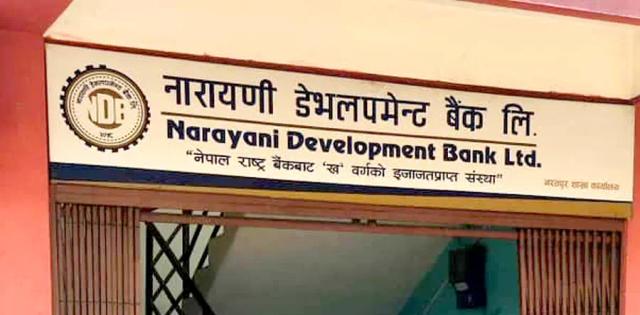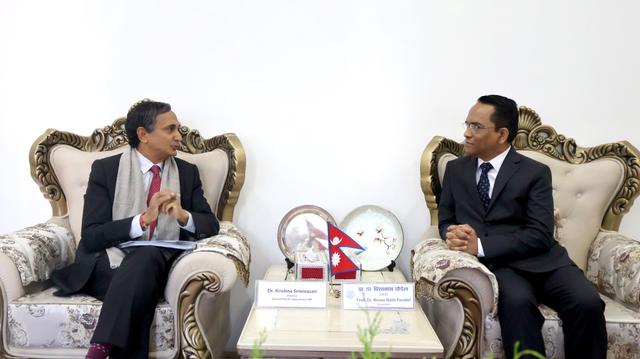Government Tightens Regulation on Casinos: Strong Measures Against Money Laundering, Illegal Foreign Exchange, and Online Gambling
Author
NEPSE TRADING

The government has moved to impose strict control and close surveillance over all casinos currently operating across the country. For years, Nepal’s casino industry has remained mired in controversies relating to security lapses, unregulated operations, fraud, and opaque financial practices. Now, under the government’s renewed commitment to strengthen financial integrity and improve regulatory oversight, the sector is set to undergo the toughest scrutiny in recent times. As part of Nepal’s efforts to exit the FATF Grey List, the Ministry of Culture, Tourism and Civil Aviation, through the Department of Tourism, has directed all casinos to fully comply with the Asset (Money) Laundering Prevention Act, 2080, and all associated provisions.
In line with the government’s intensified drive, the Department of Tourism has issued a 12-point mandatory directive aimed at bringing casino operations firmly within the legal and regulatory framework. These directives emphasize not only administrative compliance but also strict enforcement measures to ensure transparency in financial transactions and prevent misuse of casino systems for money laundering or terror financing. The department has stressed that past practices of loosely regulated operations, informal management arrangements, and minimal reporting will no longer be tolerated. The casino sector is now required to function according to international compliance standards, with rigorous monitoring and clear accountability mechanisms.
One of the major directives concerns the handling of foreign currency transactions, a sensitive area where Nepal has historically faced regulatory challenges. The department has reminded operators that no casino is permitted to engage in foreign exchange transactions without obtaining explicit authorization from Nepal Rastra Bank. Earlier investigations had revealed that some casinos were involved in illegal currency exchange inside their premises, contributing to financial irregularities and raising serious compliance concerns. To address these issues, casinos must now submit all required financial and operational details to the Department of Tourism as per the Casino Regulation 2082 and anti–money laundering rules. Failure to comply or irregularities in reporting will result in immediate legal action.
Another key area of government scrutiny is the identity verification of casino players. Casinos have been instructed to maintain a robust customer identification (KYC) system, along with updated biometric records of all players. These records must be made readily available whenever requested by the department during inspections or inquiries. Furthermore, to ensure transparency and control, all casino floors must be under continuous CCTV surveillance, and all footage must be securely stored for a minimum of six months. In the past, authorities frequently faced difficulties in obtaining CCTV evidence due to inadequate storage or intentional deletion, prompting the government to enforce strict retention requirements.
The new directives also prohibit casinos from operating through third-party agreements or indirect management structures. In earlier years, several casinos operated under partnership arrangements, subcontracting models, or informal management contracts, which diluted regulatory control and obscured accountability. The government has now fully banned these practices. Casinos may only operate at the approved and licensed location, and running any casino in an unauthorized venue is strictly prohibited. The department argues that this provision will help curb the rise of mini-casinos, VIP lounges, and clandestine gambling rooms that had begun emerging under loopholes in previous rules.
A particularly significant regulatory change is the requirement to deduct windfall tax (accidental profit tax) from any winnings before paying out prizes to players. Casinos must deduct the tax immediately, issue an official tax deduction certificate to the player, and submit the tax details to the nearest Inland Revenue Office without delay. They must also notify the Department of Tourism. This measure aims to tackle tax evasion and the use of casinos as a channel for laundering cash under the guise of gambling winnings. Authorities noted that several cases of false winnings and unreported payouts had been found in earlier audits.
Additionally, the government has enforced a complete ban on online or internet-based gambling. With online casinos and virtual betting platforms becoming hotspots for illegal financial transactions globally, Nepal has decided to prohibit all forms of online gaming offered by casinos or hotels. Casinos are also required to ensure strong security arrangements both inside and outside their premises and to maintain close coordination with security agencies regarding suspicious activities.
As part of the national effort to exit the FATF Grey List, the department has warned that any weaknesses discovered during risk-based monitoring will lead to immediate legal action against the operator. The government’s latest directives signal an assertive attempt to bring the casino sector under a higher level of transparency, compliance, and accountability. Officials believe these measures will not only curb illegal financial flows and prevent money laundering but also help restore Nepal’s reputation in the global regulatory landscape and enhance the credibility of the tourism industry.


